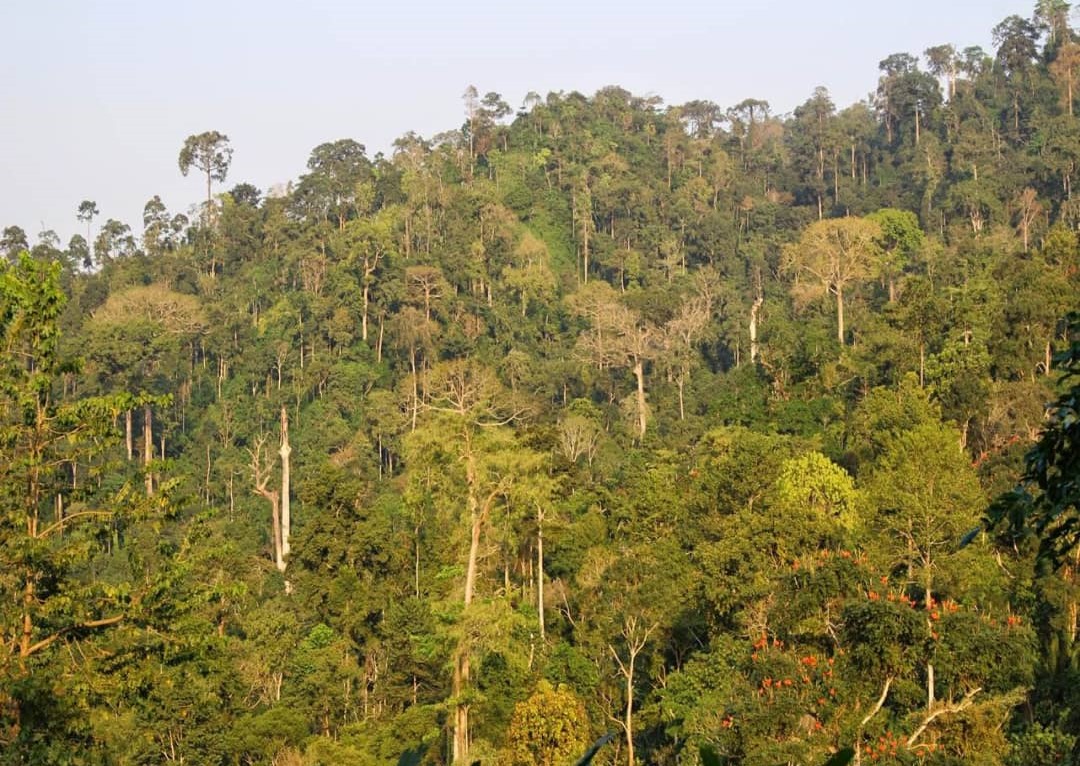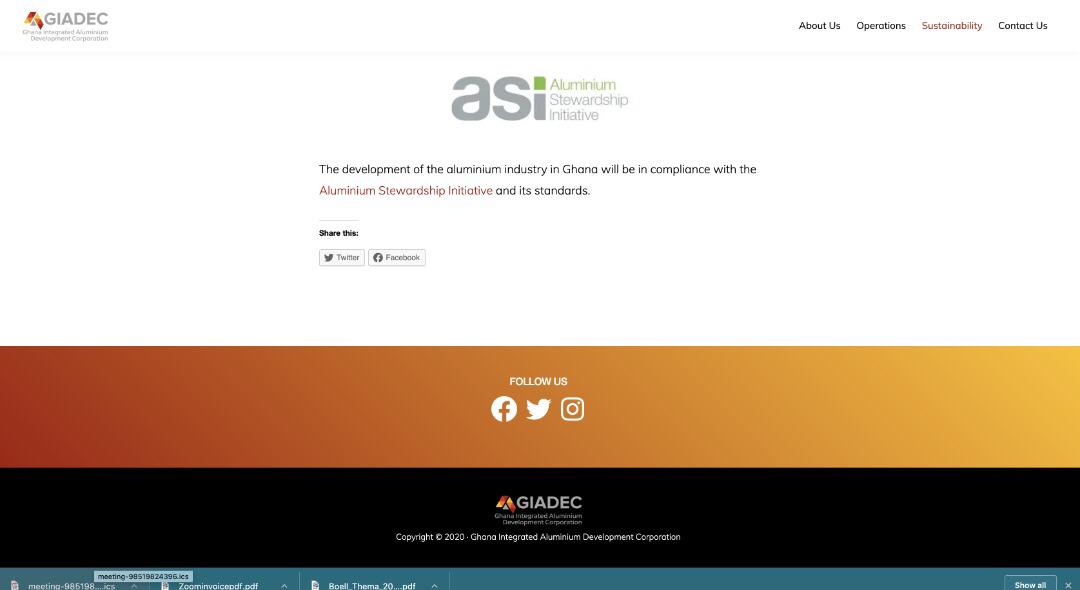Climate Change & Energy
Atewa Bauxite Mining: Giadec Caught In Another Web Of Inconsistency
Source: ghenvironment.com - November 25, 2020

Atewa forest
The Ghana Integrated Aluminium Development Corporation’s (GIADEC) has once again displayed inconsistency in its quest to superintend the mining of bauxite in the Atewa forest, in the Eastern part of Ghana.
The first one was when GIADEC told Ghanaians that, it had conducted the Environmental Impact Assessment (EIA), prior to the exploratory drilling in the protected Atewa Forest. Despite this being a legal requirement under Ghana’s laws, GIADEC failed to provide evidence when asked about the EIA.
It later explained that, the impact assessment would be conducted by the company that would finally be contracted to mine the bauxite.
The latest inconsistency by GIADEC was the claim that, its operation is in compliance with the Aluminum Stewardship Initiative’s (ASI) Performance standards.
These standards aim to ensure environmental, social, and governance sustainability along the bauxite and aluminium value chain.
But, in a statement published in the media on 21 October 2020 titled “GIADEC not conforming to national and international transparency and environmental standards”, A Rocha Ghana disputed GIADEC's claim of compliance with the Aluminium Stewardship Initiative’s (ASI) Performance standards.
On the ‘Sustainability’ page of its website, GIADEC stated that “The development of the aluminium industry in Ghana will be in compliance with the Aluminium Stewardship Initiative and its standards”.
A Rocha Ghana raised the concern that, given how far GIADEC has already progressed with its aluminium development agenda, the Corporation should by now be complying with the ASI Performance Standards since some of the requirements relate to pre-mining activities, but that these had not been complied with.
It was identified, in particular, that ASI compliance requires GIADEC to openly consult with affected communities and “to obtain their free prior and informed consent to the approval of any project affecting their lands or territories and other resources”. A Rocha Ghana showed that this had not been fulfilled and that GIADEC’s consultations have instead been restrictive, citing evidence from GIADEC’s so-called community engagement at Asiakwa, Kibi.
A statement by A Rocha also highlighted the lack of an Environmental Impact Assessment (EIA) prior to the exploratory drilling in the protected Atewa Forest despite this being a legal requirement under Ghana’s laws. The ASI standards also require an EIA as well as compliance with Ghana’s laws.
A later check on the GIADEC website on 30 October 2020 revealed that GIADEC has now removed its claim of compliance with the ASI standards. It is not clear if this is as a result of A Rocha Ghana’s statement in the media, or if it is due to pressure from the ASI itself after becoming aware that GIADEC has been claiming compliance when it has failed to do so.
The Ghana Integrated Aluminium Development Corporation’s (GIADEC) has once again displayed inconsistency in its quest to superintend the mining of bauxite in the Atewa forest, in the Eastern part of Ghana.
The first one was when GIADEC told Ghanaians that, it had conducted the Environmental Impact Assessment (EIA), prior to the exploratory drilling in the protected Atewa Forest. Despite this being a legal requirement under Ghana’s laws, GIADEC failed to provide evidence when asked about the EIA.
It later explained that, the impact assessment would be conducted by the company that would finally be contracted to mine the bauxite.
The latest inconsistency by GIADEC was the claim that, its operation is in compliance with the Aluminum Stewardship Initiative’s (ASI) Performance standards.
These standards aim to ensure environmental, social, and governance sustainability along the bauxite and aluminium value chain.
But, in a statement published in the media on 21 October 2020 titled “GIADEC not conforming to national and international transparency and environmental standards”, A Rocha Ghana disputed GIADEC's claim of compliance with the Aluminium Stewardship Initiative’s (ASI) Performance standards.
On the ‘Sustainability’ page of its website, GIADEC stated that “The development of the aluminium industry in Ghana will be in compliance with the Aluminium Stewardship Initiative and its standards”.
A Rocha Ghana raised the concern that, given how far GIADEC has already progressed with its aluminium development agenda, the Corporation should by now be complying with the ASI Performance Standards since some of the requirements relate to pre-mining activities, but that these had not been complied with.
It was identified, in particular, that ASI compliance requires GIADEC to openly consult with affected communities and “to obtain their free prior and informed consent to the approval of any project affecting their lands or territories and other resources”. A Rocha Ghana showed that this had not been fulfilled and that GIADEC’s consultations have instead been restrictive, citing evidence from GIADEC’s so-called community engagement at Asiakwa, Kibi.
A statement by A Rocha also highlighted the lack of an Environmental Impact Assessment (EIA) prior to the exploratory drilling in the protected Atewa Forest despite this being a legal requirement under Ghana’s laws. The ASI standards also require an EIA as well as compliance with Ghana’s laws.
A later check on the GIADEC website on 30 October 2020 revealed that GIADEC has now removed its claim of compliance with the ASI standards. It is not clear if this is as a result of A Rocha Ghana’s statement in the media, or if it is due to pressure from the ASI itself after becoming aware that GIADEC has been claiming compliance when it has failed to do so.



 Atewa forest
Atewa forest
